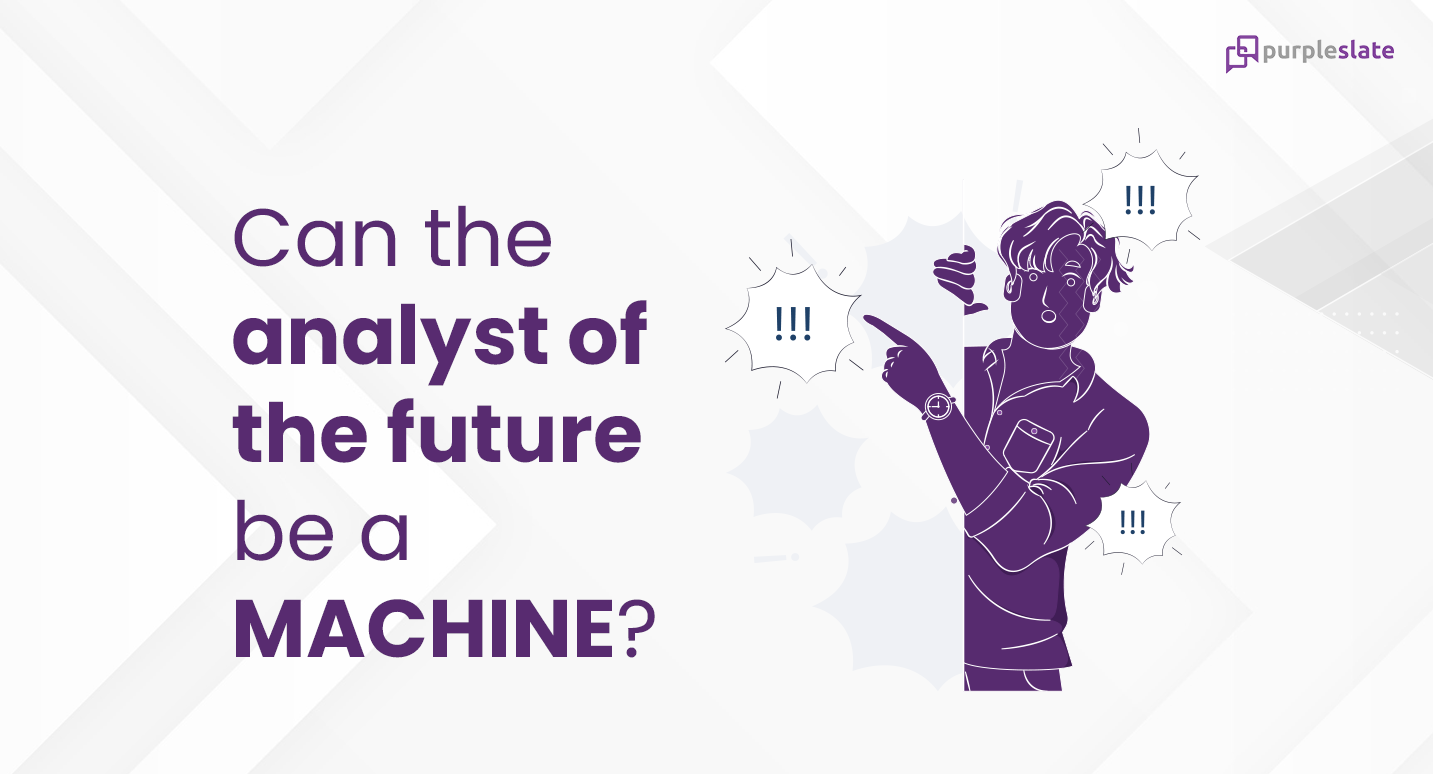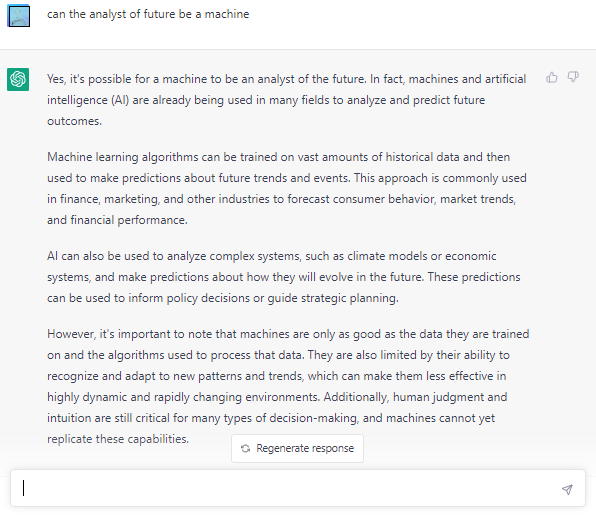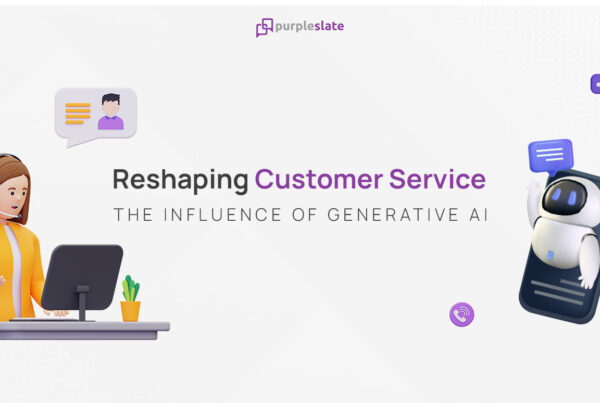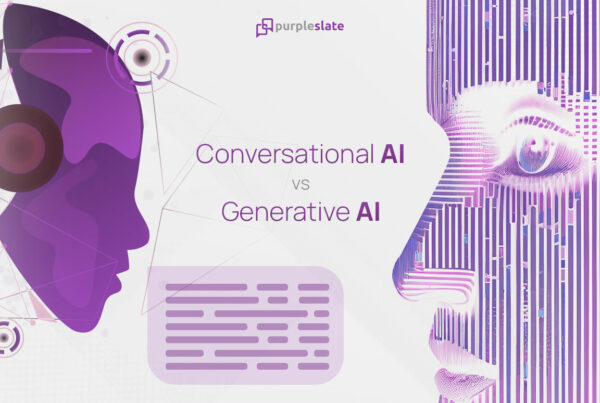
Introduction
Ever since the arrival of ChatGPT for public preview, lots has been written about it. Not
sure if any other software was put to the sword like this AI service with some really insane stuff users tried with it. The results covered a wide spectrum from fascinating to biased to insane to crazy and ridiculous.
I was asked this question recently if ChatGPT could replace a data analyst. Can it really crunch large volume of data, answer questions and provide insights and patterns that may not be immediately visible to the human analyst.
What exactly is ChatGPT?
Wikipedia definition goes like this. ChatGPT is an artificial-intelligence chatbot developed by OpenAI and launched in November 2022. It is built on top of OpenAI’s GPT-3 family of large language models and has been fine-tuned using both supervised and reinforcement learning techniques. Large Language Models (LLMs) are a type of machine learning models that support NLP – a technique that lets humans to communicate with machines using natural language (read as English, for now).
The sophisticated ChatGPT algorithm appears to have been trained on a very large dataset of publicly available web data and a huge array of books and research papers to provide a response that is lot more descriptive and pertinent. Another key difference with the response is what is called as the ‘Generative AI’ aspect of it, with every response appearing to be ‘generated’ or curated for that context. While we have been used to get amazing results from our popular search engines which are usually a simple list of relevant websites and with some really cool ‘suggestions’, it is the way in which ChatGPT is able to respond in a more human like fashion that makes it look so fascinating..
Language Interfaces are nothing new – thanks to devices like Alexa and Siri; just that the interactions with ChatGPT goes beyond playing music or checking the weather, into more complex tasks and the AI application was more than happy to provide answers in a wide array of topics. If not the errors, some of the ChatGPT responses had its own biases and inclinations making it more anthropomorphic.
Coming back to the question on if ChatGPT has the ability to replace a human analyst,
here are some of my thoughts around it.
- Yes, one of the major application of machine learning algorithms is their ability to
process very large volumes of data for patterns and aggregations that are humanly
impossible. The most popular applications of autonomous vehicles, recommenders,
search and anomaly detection algorithms are good examples. While ChatGPT
algorithms are mostly limited to ‘text processing’, analyzing sales or health data for
finite actions is a different game. - The results of ChatGPT (at least for now) are prone to mistakes. How consistent
would be the response and how confidently can we rely on the answers to take
clear actions would be a concern. Inconsistency damages the credibility of a
system. - When I ask a question to ChatGPT, I am mostly happy with whatever response it
provides. At least the correct ones. But, that cannot be the experience for answers
that are more definitive and accurate. Data analysis, especially quantitative
methods, often have to align closely with human intuition and gut. ‘He knows it
better’. It is most likely that companies and humans would rely on humans for more
trusted and reliable answers to take actions and not machines. - Privacy. To me this would be one of the major concern for enterprises to rely on a
publicly available algorithm for data analysis, however fancy and valuable the
results are. Measures around protecting data privacy and information security would
form centre stage in the coming days. - Data that is primarily handled by data analysts from traditional business operations
is often messy and will continue to remain messy and is often subject to human
interpretations. Algorithms operate on the principle of garbage in, garbage out and
hence are susceptible to the complexity of operational data
Overall, AI has arrived and Automation with AI will continue to make inroads in areas which are easy to automate. It is highly imperative for humans to be aware of the possibilities of AI and apply them effectively on mundane tasks while focusing our efforts on higher value added tasks. What we would see more of is an hybrid approach to build applications that leverage the power of ChatGPT like solutions on top of traditional IT applications to enhance the user experience.
In the 1970s, the introduction of computers and data processing raised concerns about their potential to displace human workers. However, it ultimately led to the creation of many new jobs in areas that we did not anticipate. So would be the case even with ChatGPT or any other GPT algorithms.
By the way, I did try this question with ChatGPT and here is the answer I got.





